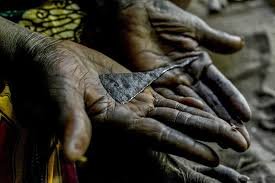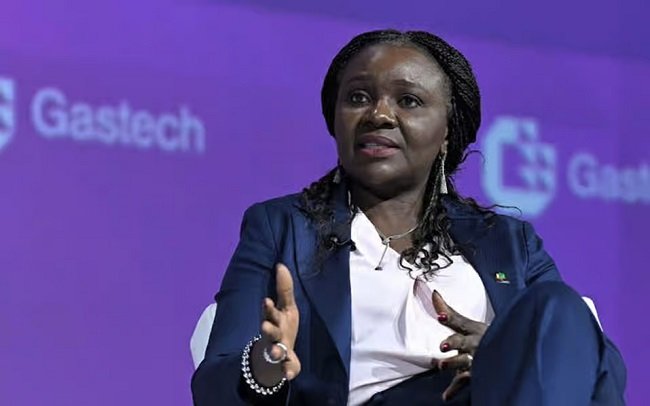
LAGOS, Nigeria – Female Genital Mutilation (FGM) remains one of Nigeria’s most persistent and painful cultural legacies. Despite global and national efforts to end the practice, millions of women and girls continue to bear its scars — on their bodies, in their marriages, and in their memories. In this report, Korede Abdullah, Africa Health Report Southwest Correspondent sheds light on the enduring struggle to eliminate FGM, drawing on the voices of survivors, health workers, scholars, and advocates working at the frontline of change.
“They Held Me Down”: The Memory That Will Not Fade
When 28-year-old Halimat (surname withheld) speaks, her voice carries a tremor that is hard to miss. The memory she recalls is not only vivid — it is haunting.
“I was only five,” she said, sitting in a quiet corner of her one-room apartment in Ibadan. “Four women held me down, and I screamed until I lost my voice. My grandmother said it was tradition. Afterward, I couldn’t walk for days. The pain… it never really leaves you.”
She pauses. “Even now, intimacy terrifies me.”
Her story is not an isolated one. It is one story among millions.
According to UNICEF, nearly 20 million Nigerian women and girls have undergone FGM — roughly 10 per cent of survivors globally.
Nigeria remains the country with the third-highest number of survivors in the world. The practice, though declining among some younger age groups, continues to steal bodily autonomy, sexual health, and emotional well-being from women and girls across the nation.
Slow Progress, Rising Concern
Nigeria has committed to eliminating FGM by 2030, aligning itself with the UN Sustainable Development Goals. But experts warn the progress is slow — too slow.
A public health physician and reproductive health advocate, Dr. Aisha Oyeleke, expressed concern at a recent media dialogue organised by UNICEF and the Oyo State Ministry of Information.
“We can’t afford to be complacent,” she said. “Yes, there is a decline among girls aged 0–14, but the numbers remain high in several states. FGM continues to threaten reproductive health, increase the risk of childbirth complications, and contribute to maternal mortality. We are running against time.”
Data suggests that while awareness campaigns have improved, cultural and family pressures still dictate decisions in many households. Silence remains one of the greatest shields protecting the practice.
Tradition, Control, and the Weight of Culture
FGM is deeply woven into cultural identity in parts of Nigeria. For many communities, it is seen as a rite of passage — a transition into womanhood. For others, it is tied to beliefs about purity and sexual discipline.
“It is about control — control over women’s bodies, sexuality, and autonomy,” said Lagos-based gender rights lawyer, Barrister Kemi Adepoju. “Communities wrap it in cultural pride, but at its core, FGM is a violation of fundamental human rights.”
She noted that in states like Imo, Ekiti, and Osun, prevalence rates still exceed 60 per cent, driven by myths that cutting prevents promiscuity or ensures marital fidelity.
“These myths destroy lives,” she said.
Cut Before They Can Cry
Perhaps the most disturbing trend is the increasing number of infants subjected to FGM. In some states, more than 80 per cent of procedures occur before a child turns one.
“These children have no consent, no understanding,” Dr. Oyeleke explained. “It is a violence carried out on bodies too small to resist. They grow up with scars they never agreed to bear.”
Some mothers do not support the practice but feel pressured — by grandmothers, in-laws, or the wider community. To refuse is to risk shame, conflict, or ostracism.
In many rural communities, to be “uncut” is to be unmarriageable.
The Law on Paper — and the Silence in Practice
Nigeria criminalised FGM in 2015 through the Violence Against Persons (Prohibition) Act (VAPP). However, nearly a decade later, enforcement is almost non-existent.
Only about half of Nigeria’s 36 states have passed the law at the state level — leaving vast regions without legal protection.
“Since the law was passed, no one has been prosecuted for carrying out FGM,” Barrister Adepoju said. “Cutters still operate openly in some rural areas. Survivors rarely report cases due to stigma, and when they do, law enforcement often dismisses it as a ‘family matter’.”
Legal gaps and cultural silence have created a space where impunity thrives.
Religion Misused and Clarified
FGM is not a religious requirement. Yet, in some communities, it is falsely attributed to Islam or Christianity.
Sheikh Uthmaan Suleiman, a respected Muslim cleric in Southwest Nigeria, is working to correct these misconceptions.
“FGM has no basis in Islam,” he said firmly. “What our faith teaches is cleanliness and dignity — not cruelty. Islam forbids inflicting harm on the body that God has perfected.”
He urged more imams and pastors to speak publicly against FGM.
“Clerics shape morality. If they speak clearly, the people will listen.”
Men Are Now Stepping Forward
For decades, anti-FGM campaigns were largely led by women. But change requires shifting the patriarchal structures that allow the practice to continue.
“For too long, this was seen as a women’s issue,” said development advocate Aderonke Olutayo. “But when men — fathers, husbands, brothers — speak out, the conversation changes. Communities listen differently.”
Male allies are now being trained as advocates in several hotspots across the Southwest and Southeast, helping dismantle long-held beliefs about masculinity, purity, and control.
Where the Practice Persists Most
Data from UNICEF and national surveys show that FGM remains concentrated in parts of the Southwest and Southeast.
According to the Multiple Indicator Cluster Survey (MICS 2021), Imo, Ekiti, Osun, Oyo, Ebonyi, and Kwara states record the highest prevalence rates with Imo accounting for 61.7%, while Osun once reached a staggering 76.6% in 2016.
Ekiti and Oyo continue to show worrying trends, with Oyo’s prevalence rising between 2018 and 2021. Although Ebonyi has seen some decline, Kwara’s rates have recently surged, placing it among the highest-burden states.
The numbers reveal one truth: FGM is not just a cultural issue — it is a deeply regional on
The Scars You Cannot See
Beyond the physical damage — which can include infection, infertility, obstructed labour, and sexual dysfunction, many survivors battle invisible wounds.
“We need safe spaces for survivors,” said psychologist Dr. Ngozi Eze. “They need medical care, counseling, and legal support. But they also need to be heard. Silence is a second wound.”
For Halimat, telling her story is a step toward healing and a form of resistance.
“Maybe if more of us speak,” she said softly, “they will stop doing this to little girls.”
The Road Ahead
Experts agree that ending FGM requires coordinated national action:
Stronger law enforcement and full domestication of the VAPP Act
Community-led sensitisation led by women and men
Public rejection of cutters’ social status
Psychosocial support for survivors
Clear messaging from religious leaders
Training healthcare workers to refuse involvement
“It is not impossible,” said UNICEF’s Celine Lafoucrier. “Ending FGM is a duty we owe every girl. Nigeria must choose compassion over tradition — dignity over silence.”
Nigeria’s fight is far from over. The scars of FGM may be silent, but they speak. And until every girl is safe, the nation must continue to listen and act.




